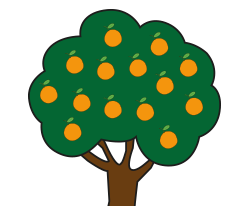As farmers, we often opt for seedlings rather than seeds in many cases, due to several practical and crop-specific reasons:
Saving time: For crops like tomatoes, which have a relatively short growing season, using seedlings allows us to bypass the slow and vulnerable stages of germination. Tomato seeds can take several weeks to sprout and reach a size suitable for transplanting. By planting seedlings, we accelerate the growth process, enabling earlier fruit production and a quicker harvest. This is particularly important in regions with shorter growing seasons or when aiming for multiple harvest cycles in a year.
Higher success rate: When it comes to olive trees, the use of seedlings (also known as olive saplings) greatly improves the likelihood of successful establishment. Olive seeds are known for their slow and uneven germination rates, and they require specific conditions that are not always easy to maintain in the field. Seedlings, however, have already surpassed these early challenges, making them more robust and capable of adapting to the environment when transplanted. This increases the chances of the sapling surviving and thriving in the orchard.
For orange trees, which belong to the citrus family, seedlings also offer a distinct advantage. Citrus seeds often require precise conditions to germinate, and the young plants are highly sensitive to temperature fluctuations and soil moisture. By using seedlings, we ensure that these young orange trees have already developed a solid root system, making them less vulnerable to stress and more adaptable when planted in their permanent location.
Easier crop management: Using seedlings ensures that crops like tomatoes, olives, and oranges grow at a similar pace, making it much easier to manage the planting and harvesting schedules. For tomatoes, this means a more organized and staggered harvest, reducing the risk of over-ripening or spoilage. For perennial crops like olives and oranges, uniform growth ensures that the trees mature at a consistent rate, allowing for more predictable yields and easier long-term orchard management.
However, while seedlings offer clear advantages, some plants are better suited to direct sowing. For instance, crops like carrots and radishes develop best when grown from seed directly in the soil due to their sensitive taproots, which don’t handle transplanting well.
Nurseries play an indispensable role in cultivating these seedlings, particularly for specialized crops like olives, which require precise conditions to develop their hardy root systems. They also ensure that tomato plants are well-prepared for rapid growth and that citrus seedlings, like those of oranges, are nurtured to resist diseases and environmental stresses. This careful attention in the early stages results in robust, vigorous plants that are ready to thrive when they are transplanted to the field or orchard.





 My account
My account 

































